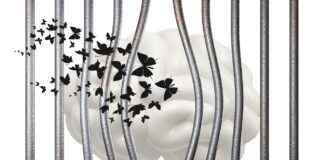This article delves into the process, benefits, and challenges of a one-week water fast, providing insights on preparation, potential side effects, and tips for a successful experience.
What is a Water Fast?
A water fast is a dietary practice that involves consuming only water for a specific duration, typically lasting seven days. This method is often pursued for various reasons, including detoxification, weight loss, and improving metabolic health. Understanding the fundamentals of a water fast is essential for anyone considering this journey.
Health Benefits of a 1-Week Water Fast
Engaging in a week-long water fast can yield numerous health benefits:
- Improved Insulin Sensitivity: Regular fasting can enhance the body’s response to insulin, which is crucial for metabolic health.
- Cellular Repair: The fasting period allows the body to focus on repairing damaged cells and removing toxins.
- Enhanced Mental Clarity: Many individuals report improved focus and cognitive function during fasting.
Detoxification and Cellular Repair
Water fasting facilitates detoxification by enabling the body to concentrate on cellular repair and toxin elimination. This process is vital for maintaining overall health and vitality.
Understanding Autophagy
During a water fast, the body undergoes a process called autophagy, where cells remove damaged components. This process is enhanced during fasting, contributing to cellular rejuvenation and longevity.
Impact on Inflammation
Research indicates that water fasting may reduce inflammation markers within the body, potentially alleviating chronic conditions and promoting better health outcomes.
Mental Clarity and Focus
Many individuals experience heightened mental clarity during a water fast. This section explores the mechanisms behind improved cognitive function and concentration levels.
Preparing for a 1-Week Water Fast
Preparation is key to a successful water fast. Essential steps include:
- Consulting with a Healthcare Professional: It’s advisable to speak with a healthcare provider before starting a water fast, especially for those with pre-existing conditions or those on medication.
- Gradual Dietary Changes: Transitioning to a water fast can be smoother by gradually eliminating solid foods, allowing the body to adjust and minimizing discomfort.
What to Expect During the Fast
Understanding what to expect during a water fast is crucial for maintaining commitment. Common experiences include:
- Physical Symptoms: Individuals may experience headaches, fatigue, and dizziness. Being aware of these symptoms can prepare you for the journey ahead.
- Emotional and Psychological Challenges: Fasting can also lead to mood swings and irritability. Recognizing these feelings is essential for maintaining a positive mindset throughout the fast.
Post-Fast Refeeding Guidelines
The refeeding phase after a water fast is crucial for health and recovery. Guidelines include:
- Choosing the Right Foods: After a prolonged fast, start with light, easily digestible foods to help the digestive system readjust.
- Hydration and Nutrition Balance: Maintaining hydration and a balanced intake of nutrients during the refeeding phase is vital for recovery.
In conclusion, a one-week water fast can be a transformative experience when approached with proper knowledge and preparation. By understanding the benefits, challenges, and necessary steps for success, individuals can embark on this journey with confidence.

What is a Water Fast?
A water fast is a dietary regimen that involves the exclusive consumption of water for a defined period. Typically lasting from 24 hours to an entire week, this fasting method is often pursued for various reasons, including detoxification, weight loss, and enhancement of metabolic health. It is essential to understand the principles and implications of this fasting approach before diving into the experience.
During a water fast, individuals abstain from all solid foods and caloric beverages, relying solely on water to meet their hydration needs. This practice is believed to initiate a range of physiological changes in the body, including a shift from glucose to fat metabolism, which can lead to weight loss. Moreover, the absence of food intake allows the body to focus on repairing cells and eliminating toxins, contributing to overall health improvement.
Understanding the mechanisms and potential benefits of a water fast is crucial. The fast can trigger a process called autophagy, where the body cleans out damaged cells and regenerates new ones. This cellular repair mechanism is vital for maintaining health and combating age-related diseases. Additionally, water fasting may help reduce inflammation, which is linked to various chronic health conditions, thereby promoting better health outcomes.
One of the most notable benefits reported by individuals who undergo water fasting is enhanced mental clarity. Many participants claim to experience improved focus and cognitive function during this period. This phenomenon can be attributed to the body’s adaptation to fasting, which may lead to increased production of brain-derived neurotrophic factor (BDNF), a protein associated with cognitive enhancement.
However, embarking on a water fast requires careful consideration and preparation. It is advisable to consult with a healthcare professional, especially for individuals with pre-existing health conditions or those taking medications. Gradually reducing food intake before the fast can also help ease the transition, minimizing discomfort and potential side effects.
In summary, a water fast is a powerful tool for detoxification, weight loss, and metabolic enhancement. By understanding its principles and preparing adequately, individuals can embark on this journey with confidence, reaping the numerous health benefits associated with this fasting method.

Health Benefits of a 1-Week Water Fast
Engaging in a week-long water fast can yield numerous health benefits that have been supported by scientific research. This practice, which involves consuming only water for a set period, is gaining popularity among health enthusiasts and those seeking to improve their overall well-being. In this section, we will explore the various advantages of a one-week water fast, including improved insulin sensitivity, cellular repair, and enhanced mental clarity.
One of the most significant benefits of a week-long water fast is the improvement in insulin sensitivity. Insulin resistance is a common issue that can lead to various health problems, including type 2 diabetes. During a water fast, insulin levels drop, allowing the body to utilize stored fat for energy more effectively. Studies have shown that fasting can enhance the body’s ability to respond to insulin, which may help in the management of blood sugar levels.
Water fasting triggers a process known as autophagy, where the body cleans out damaged cells and regenerates new ones. This cellular repair mechanism is essential for maintaining health and longevity. Research indicates that autophagy can help protect against diseases such as cancer and neurodegenerative disorders. By allowing the body to focus on repair rather than digestion, a water fast can significantly enhance overall cellular health.
Fasting has been linked to a reduction in inflammation markers within the body. Chronic inflammation is associated with various health issues, including heart disease and autoimmune disorders. By engaging in a water fast, individuals may experience a decrease in inflammatory responses, which can lead to improved health outcomes and a reduction in the risk of chronic diseases.
Many individuals report experiencing heightened mental clarity during a water fast. This phenomenon can be attributed to several factors, including the reduction of sugar fluctuations and the increased production of brain-derived neurotrophic factor (BDNF), which supports brain health. As the body shifts its energy source from glucose to ketones, cognitive function may improve, leading to better focus and concentration.
In addition to physical health benefits, a week-long water fast can also promote emotional and psychological well-being. Many participants report feelings of accomplishment and improved mood throughout the fasting period. This may be due to the release of endorphins, often referred to as “feel-good” hormones, during fasting. Moreover, overcoming the challenges of fasting can enhance resilience and mental fortitude.
Weight loss is often a primary motivation for those considering a water fast. By consuming only water, individuals may experience a significant reduction in caloric intake, leading to weight loss. Furthermore, fasting can boost metabolism, as the body becomes more efficient in burning fat for energy. This dual effect of weight loss and metabolic enhancement can contribute to improved overall health.
While the benefits of a week-long water fast are substantial, it is essential to acknowledge potential side effects. Common experiences include fatigue, dizziness, and irritability. It is crucial for individuals to listen to their bodies and consult with a healthcare professional before embarking on this fasting journey, especially if they have pre-existing health conditions.
In summary, a week-long water fast offers a range of health benefits, from improved insulin sensitivity and cellular repair to enhanced mental clarity. However, preparation and awareness of potential challenges are vital for a successful fasting experience.
Detoxification and Cellular Repair
Water fasting is a powerful method that can significantly enhance the body’s natural ability to detoxify and repair itself. By abstaining from food and consuming only water, the body enters a state that promotes healing and rejuvenation. This process is not merely about deprivation; it is a time for the body to focus on essential functions that often get overlooked in our busy lives.
During a water fast, the body shifts its focus from digestion to cellular repair. When food intake ceases, the body begins to utilize stored energy, primarily in the form of glycogen and fat. This metabolic shift triggers a cascade of beneficial processes, including the removal of toxins that have accumulated over time. The liver, kidneys, and other detoxification organs become more efficient as they work to eliminate these harmful substances.
One of the most significant processes that occurs during water fasting is autophagy. This is a natural mechanism where cells break down and remove damaged components, effectively ‘cleaning house.’ Enhanced autophagy not only helps in cellular repair but also plays a critical role in preventing various diseases. Research indicates that this process can lead to improved longevity and a decreased risk of chronic illnesses.
Moreover, studies have shown that water fasting can reduce markers of inflammation in the body. Chronic inflammation is linked to numerous health issues, including heart disease, diabetes, and certain cancers. By lowering inflammation levels, water fasting can contribute to better overall health and a reduced risk of developing these conditions.
Another important aspect of detoxification during a water fast is the improvement of insulin sensitivity. When the body is not constantly processing food, it can better regulate blood sugar levels. This can lead to enhanced metabolic health, making it easier for the body to manage weight and reduce the risk of type 2 diabetes.
As the body detoxifies and repairs itself, many individuals report experiencing increased mental clarity and focus. This heightened cognitive function is attributed to the reduction of brain fog and the improved efficiency of neurotransmitters, which can be rejuvenated during fasting periods. The feeling of mental sharpness often motivates individuals to continue their fasting journey.
In summary, water fasting serves as a potent tool for detoxification and cellular repair. By allowing the body to focus on these essential processes, individuals can experience a range of health benefits that contribute to overall well-being. However, it is crucial to approach fasting with care and preparation, ensuring that the body is ready to undergo such a transformative experience.
When considering a water fast, it is advisable to consult with a healthcare professional, especially for those with underlying health conditions. Proper guidance can help maximize the benefits of fasting while minimizing potential risks.
Autophagy Explained
Autophagy is a critical cellular process that plays a vital role in maintaining cellular health and function. It involves the degradation and recycling of damaged cellular components, such as proteins and organelles, which is essential for cellular renewal. During periods of fasting, particularly a water fast, the process of autophagy is significantly enhanced, leading to numerous health benefits.
When the body is deprived of food, it enters a state of metabolic adaptation, which triggers autophagy. This natural mechanism allows cells to break down and eliminate dysfunctional parts, effectively cleansing the body at a cellular level. Research has shown that enhanced autophagy can lead to cellular rejuvenation, promoting longevity and reducing the risk of age-related diseases.
One of the primary benefits of autophagy is its role in cellular repair. By removing damaged components, cells can function more efficiently, which is crucial for overall health. Moreover, this process has been linked to improved insulin sensitivity, as it helps regulate metabolic processes and can reduce the risk of type 2 diabetes.
In addition to metabolic benefits, autophagy has a profound impact on inflammation. Chronic inflammation is associated with various health issues, including heart disease and autoimmune disorders. By promoting autophagy, fasting helps to reduce inflammation markers, contributing to better health outcomes and potentially alleviating symptoms of chronic conditions.
Furthermore, autophagy has been shown to enhance mental clarity and cognitive function. The process of recycling cellular components can lead to improved brain health, as it helps eliminate neurotoxic substances that may contribute to cognitive decline. Many individuals report heightened focus and mental clarity during fasting periods, likely due to the increased production of brain-derived neurotrophic factor (BDNF), which is stimulated by autophagy.
To maximize the benefits of autophagy during a water fast, it is essential to approach the fast mindfully. Preparing the body through gradual dietary changes can enhance the fasting experience and minimize discomfort. Additionally, staying hydrated is crucial, as water not only supports bodily functions but also aids in the detoxification process.
In summary, autophagy is a powerful natural process that is significantly enhanced during a water fast. By facilitating cellular repair, reducing inflammation, and improving cognitive function, autophagy contributes to overall health and longevity. Understanding this process can empower individuals to make informed decisions about their fasting practices, ultimately leading to a healthier lifestyle.
Impact on Inflammation
Recent studies have shown that water fasting can significantly influence inflammation levels within the body. Inflammation is a natural response of the immune system; however, chronic inflammation is linked to various health issues, including heart disease, diabetes, and autoimmune disorders. Understanding how water fasting can mitigate these risks is essential for anyone considering this practice.
During a water fast, the body undergoes several physiological changes that contribute to reduced inflammation. One of the primary mechanisms is the decrease in circulating levels of inflammatory markers such as C-reactive protein (CRP) and interleukin-6 (IL-6). These markers are often elevated in individuals suffering from chronic conditions. By limiting food intake and focusing solely on water, the body can redirect its energy from digestion to healing processes.
Furthermore, autophagy, a process that is enhanced during fasting, plays a crucial role in reducing inflammation. Autophagy allows cells to break down and recycle damaged components, thereby promoting cellular health and longevity. This cellular rejuvenation not only helps in clearing out dysfunctional proteins but also reduces the overall inflammatory response in the body.
Another significant aspect of water fasting is its impact on insulin sensitivity. Improved insulin sensitivity leads to better metabolic health, which is closely linked to reduced inflammation. When insulin levels are stable, the body is less prone to inflammatory responses, making fasting an effective tool for managing chronic health conditions.
Moreover, fasting has been associated with the production of anti-inflammatory cytokines. These proteins help regulate the immune response and can help to counteract the effects of pro-inflammatory cytokines. As the body adapts to a fasted state, it begins to produce more of these beneficial compounds, further aiding in the reduction of inflammation.
It is crucial to note that while water fasting can offer these benefits, it is not suitable for everyone. Individuals with pre-existing health conditions or those on medication should consult with a healthcare professional before embarking on a fasting regimen. This step ensures that the fasting process is safe and tailored to individual health needs.
In summary, the impact of water fasting on inflammation is profound. By reducing inflammatory markers, enhancing autophagy, improving insulin sensitivity, and promoting the production of anti-inflammatory cytokines, water fasting can serve as a powerful tool in managing chronic health issues. However, proper preparation and professional guidance are essential to maximize the benefits and ensure a safe fasting experience.
Mental Clarity and Focus
Water fasting has gained popularity not only for its physical health benefits but also for its potential to enhance mental clarity and focus. Many individuals who undertake a water fast report experiencing heightened cognitive function, improved concentration, and a sense of mental sharpness. This section delves into the underlying mechanisms that contribute to these cognitive benefits during a week-long water fast.
One of the primary reasons for improved mental clarity during fasting is the body’s shift from using glucose as its main energy source to utilizing ketones. When food intake is restricted, the liver begins to break down fatty acids, producing ketones, which can serve as an efficient fuel for the brain. Research indicates that ketones may enhance mitochondrial function, leading to improved energy production in brain cells, which can result in sharper cognitive abilities.
Additionally, fasting triggers a process known as neurogenesis, the growth of new neurons in the brain. This phenomenon is associated with the production of brain-derived neurotrophic factor (BDNF), a protein that promotes the survival and growth of neurons. Higher levels of BDNF are linked to improved learning, memory, and overall cognitive performance. Thus, during a water fast, as BDNF levels rise, individuals may find themselves experiencing enhanced mental clarity and focus.
Furthermore, fasting has been shown to reduce levels of inflammation in the brain. Chronic inflammation is often linked to cognitive decline and various neurological disorders. By minimizing inflammatory markers, water fasting can create a more conducive environment for optimal brain function. This reduction in inflammation can lead to improved mood and cognitive flexibility, allowing individuals to think more clearly and concentrate better.
Another significant factor contributing to mental clarity during a water fast is the psychological aspect of fasting itself. Many individuals report a sense of mental discipline and a heightened awareness of their thoughts and emotions when fasting. This introspective state can lead to improved focus as distractions are minimized. The act of fasting can also foster a sense of accomplishment and determination, further enhancing concentration levels.
While the benefits of improved mental clarity during a water fast are compelling, it’s essential to approach fasting with caution. Individuals may experience initial challenges such as headaches, irritability, or fatigue, especially during the first few days. These symptoms are often temporary and can be mitigated by staying well-hydrated and allowing the body time to adjust to the fasting state.
In summary, the cognitive benefits of a one-week water fast are multifaceted. From the shift to ketone metabolism and increased BDNF production to reduced brain inflammation and enhanced mental discipline, these factors collectively contribute to heightened mental clarity and focus. As individuals embark on their fasting journey, understanding these mechanisms can provide motivation and insight into the profound effects of water fasting on cognitive function.

Preparing for a 1-Week Water Fast
Preparation is essential for a successful water fast, especially when committing to a week-long journey of only consuming water. Proper preparation not only enhances the experience but also minimizes potential discomfort and maximizes the health benefits associated with fasting. Here, we outline critical steps to consider before embarking on this fasting journey.
- Consult a Healthcare Professional: Before starting a water fast, it’s vital to consult with a healthcare provider, particularly if you have pre-existing health conditions or are on medication. A professional can offer personalized advice and ensure that fasting is safe for you.
- Gradual Dietary Adjustments: To ease into a water fast, begin by gradually eliminating solid foods from your diet. Start with lighter meals, such as fruits and vegetables, and progressively move to a liquid diet. This transition phase helps your body adapt and reduces the likelihood of experiencing intense cravings or discomfort during the fast.
- Stay Hydrated: In the days leading up to your fast, ensure you are well-hydrated. Drinking plenty of water will prepare your body for the fasting period and may help mitigate feelings of hunger once you begin.
- Prepare Mentally: Mental readiness is just as crucial as physical preparation. Take time to reflect on your motivations for fasting and set clear goals. Consider practicing mindfulness or meditation to foster a positive mindset, which can help you cope with the challenges that may arise during the fast.
- Educate Yourself: Understanding the fasting process can alleviate anxiety and empower you during your journey. Research the benefits and potential side effects of water fasting. Being informed will help you navigate any difficulties and stay committed to your goals.
- Gather Support: Consider informing friends or family about your fasting plans. Having a support system can provide encouragement and accountability. Alternatively, joining online communities can connect you with others who are also fasting.
By taking these essential steps, you can enhance your experience and increase your chances of successfully completing a one-week water fast. Remember, the journey may be challenging, but with the right preparation, you can achieve your health and wellness goals.
Ultimately, preparation is not just about physical readiness; it encompasses mental and emotional aspects as well. A well-rounded approach ensures that you enter your water fast with confidence, clarity, and a strong sense of purpose.
Consulting with a Healthcare Professional
Before embarking on a 1-week water fast, it is essential to prioritize your health and safety by consulting with a healthcare professional. This step is particularly crucial for individuals with pre-existing medical conditions or those who are currently taking medications. A healthcare provider can offer personalized advice based on your health history and current circumstances, ensuring that you are making a well-informed decision.
Water fasting can have significant effects on the body, and while many people may experience positive outcomes, there are potential risks involved. For instance, individuals with conditions such as diabetes, heart disease, or eating disorders may face complications during a prolonged fast. Consulting with a healthcare provider can help identify any underlying issues that may arise and provide strategies to mitigate risks.
Additionally, certain medications may interact negatively with fasting. For example, medications that require food for absorption or those that affect blood sugar levels need careful consideration. A healthcare professional can help you understand how to adjust your medication regimen during the fasting period, if necessary.
Moreover, the psychological aspect of fasting is often overlooked. Many individuals may experience emotional challenges such as mood swings or anxiety during a fast. A healthcare provider can offer insights into managing these feelings and provide resources for emotional support. They may suggest techniques such as mindfulness or meditation to help maintain a positive mindset throughout the fasting experience.
It is also important to discuss your goals for fasting with your healthcare provider. Whether you aim to detoxify your body, lose weight, or improve metabolic health, having clear objectives can guide your fasting journey. A healthcare professional can help you set realistic expectations and develop a plan that aligns with your health needs.
In summary, consulting with a healthcare professional before starting a water fast is not just a precaution; it is a vital step that can enhance your fasting experience. By receiving tailored advice and support, you can ensure that your journey is safe and effective. Remember, your health should always come first, and having a knowledgeable partner in your fasting journey can make all the difference.
In conclusion, taking the time to consult with a healthcare provider can provide you with the confidence and knowledge needed to embark on a water fast safely. This proactive approach allows for adjustments based on your unique health profile and ultimately paves the way for a successful fasting experience.
Gradual Dietary Changes
Transitioning to a water fast is a significant step that requires careful planning and preparation. One of the most effective strategies to ensure a smooth transition is by gradually eliminating solid foods from your diet. This method allows your body to adjust to the upcoming fasting period, minimizing discomfort and potential side effects.
The process of typically begins several days before the start of your water fast. Start by reducing your intake of heavy meals, processed foods, and sugars. Instead, incorporate lighter meals that are easier to digest, such as fruits, vegetables, and broths. This approach not only prepares your body physically but also mentally for the fasting experience.
During the initial transition phase, aim to consume more liquids. Smoothies, herbal teas, and clear soups can be excellent choices. These options provide hydration and essential nutrients without overwhelming your digestive system. As you progress, gradually decrease the quantity of solid foods while increasing your fluid intake.
It’s also important to listen to your body during this transition. If you experience cravings or hunger pangs, focus on staying hydrated. Drinking water can help curb these feelings and keep your body functioning optimally. Additionally, consider engaging in light physical activities, such as walking or yoga, to help facilitate the transition and promote relaxation.
As you approach the start of your water fast, aim to eliminate solid foods entirely for at least 24 hours prior. This final step helps your body to enter a fasting state more easily, reducing the likelihood of experiencing severe hunger or discomfort once the fast begins.
In summary, transitioning to a water fast can be a more manageable experience by implementing gradual dietary changes. By slowly eliminating solid foods and focusing on hydration, you can prepare your body to adapt to the fasting period, enhancing both your comfort and overall experience. This preparation phase is not just about physical readiness; it also sets the stage for a successful mental journey through the fast.

What to Expect During the Fast
Embarking on a one-week water fast can be both an exciting and daunting experience. Understanding what to expect during this period can significantly alleviate concerns and help individuals remain committed to their fasting journey. This section will delve into the common experiences, challenges, and strategies to navigate this transformative process.
Physical Symptoms and Side Effects
As the body transitions into a state of fasting, individuals may encounter a variety of physical symptoms. These can include:
- Headaches: Often a result of caffeine withdrawal or dehydration, headaches can be common in the initial days.
- Fatigue: A decrease in energy levels is typical as the body adjusts to using fat stores for fuel.
- Dizziness: This may occur due to low blood sugar levels or dehydration, making hydration crucial.
- Hunger Pangs: These sensations can be intense, particularly in the first few days, as the body craves its usual intake of food.
Recognizing these symptoms early can prepare individuals for the journey ahead, allowing them to approach the fast with a sense of readiness.
Emotional and Psychological Challenges
Fasting is not just a physical endeavor; it also presents emotional and psychological challenges. Some individuals may experience:
- Mood Swings: Fluctuations in mood can arise due to changes in blood sugar levels and the absence of food.
- Irritability: As the body adjusts, irritability may surface, especially in social situations where food is present.
- Cravings: The desire for specific foods can be overwhelming, particularly for those who have habitual eating patterns.
Being aware of these emotional responses is essential for maintaining a positive mindset throughout the fast. Many find that engaging in mindfulness practices, such as meditation or journaling, can help manage these feelings.
Hydration: The Key to Success
During a water fast, proper hydration is vital. Drinking enough water not only helps alleviate some physical symptoms but also supports overall bodily functions. It is recommended to:
- Drink Adequate Water: Aim for at least 2-3 liters of water daily to stay hydrated.
- Monitor Electrolyte Levels: Consider adding a pinch of salt to your water or consuming electrolyte supplements to maintain balance.
Staying Committed: Tips for Success
Staying committed to a water fast can be challenging, but employing certain strategies can enhance the experience:
- Set Clear Goals: Define your reasons for fasting and keep them in mind throughout the process.
- Engage in Light Activities: Gentle exercises like walking or yoga can help maintain energy levels without overexerting.
- Seek Support: Joining a fasting group or finding a fasting buddy can provide motivation and accountability.
In conclusion, understanding the potential experiences and challenges during a water fast can empower individuals to approach the journey with confidence. By preparing for physical and emotional symptoms, staying hydrated, and implementing strategies for success, individuals can navigate their fasting experience more effectively.
Physical Symptoms and Side Effects
Embarking on a water fast can be a profound experience, but it is essential to understand the physical symptoms and side effects that may arise during this period. A one-week water fast involves consuming only water, which can lead to various sensations as your body adjusts to this significant dietary change.
During a water fast, individuals may encounter a range of physical symptoms. Commonly reported issues include:
- Headaches: One of the most frequent complaints during a water fast is headaches. These may occur due to withdrawal from caffeine or sugar, dehydration, or the body’s adjustment to fasting.
- Fatigue: As the body transitions to fasting, energy levels may drop, leading to feelings of fatigue. This is often temporary and can improve as the body adapts.
- Dizziness: Some individuals may experience dizziness, particularly when standing up quickly. This can be attributed to low blood sugar levels and dehydration.
- Nausea: A feeling of nausea may arise, especially if the fast is initiated abruptly. This can be mitigated by gradually reducing food intake before starting the fast.
- Muscle Cramps: As the body depletes its glycogen stores, muscle cramps can occur. Staying hydrated is crucial to minimize this discomfort.
Understanding these symptoms can prepare you for the journey ahead. It is important to listen to your body and recognize that each individual’s experience may vary.
While experiencing these symptoms can be challenging, there are strategies to manage them effectively:
- Stay Hydrated: Drinking sufficient water is vital. Aim for at least 2-3 liters a day to help alleviate headaches and dizziness.
- Rest: Allow your body to rest as needed. Fatigue is common during the early days of fasting, so prioritize sleep and relaxation.
- Gradual Transition: If possible, gradually transition into the fast by reducing food intake over a few days. This can help your body adjust more smoothly.
- Monitor Your Body: Pay attention to how your body responds. If symptoms become severe, consider breaking the fast and consulting a healthcare professional.
Additionally, it’s important to prepare mentally for the emotional aspects of fasting. Mood swings and irritability can accompany physical symptoms, making it essential to maintain a positive mindset. Engaging in light activities such as meditation or gentle yoga can help improve emotional well-being during this period.
In summary, being aware of the potential physical symptoms and side effects of a water fast can help you navigate the experience more effectively. By preparing adequately and employing strategies to manage symptoms, you can enhance your fasting journey and reap the benefits of this transformative practice.
Emotional and Psychological Challenges
Fasting can be a transformative experience, but it is not without its challenges. One of the most significant aspects to consider is the that may arise during this period. While many individuals embark on a water fast for physical benefits, it is equally important to prepare for the emotional rollercoaster that often accompanies such a drastic dietary change.
During a one-week water fast, mood swings and irritability are common. These emotional fluctuations can stem from various factors, including hormonal changes, caloric deprivation, and even the psychological impact of abstaining from food. Understanding these feelings is crucial for maintaining a positive mindset throughout the fast.
- Hormonal Changes: Fasting can lead to fluctuations in hormones such as cortisol, which is associated with stress. Elevated cortisol levels can result in feelings of anxiety and irritability.
- Caloric Deprivation: The body’s response to reduced caloric intake can manifest as fatigue and moodiness. Without the usual energy sources, individuals may find themselves more susceptible to emotional downturns.
- Psychological Impact: The mental aspect of fasting can also play a significant role. The act of refraining from food can trigger feelings of deprivation, leading to cravings and emotional distress.
Recognizing these emotional shifts is essential. Acknowledging that mood swings are a natural part of the fasting process can help individuals cope more effectively. Here are some strategies to manage these emotional challenges:
- Mindfulness Practices: Engaging in mindfulness techniques such as meditation or deep breathing can help center thoughts and reduce anxiety.
- Journaling: Keeping a journal during the fast can provide an outlet for emotions. Writing about feelings can help process them and offer insights into personal triggers.
- Support Systems: Connecting with others who are also fasting or have experience with it can provide encouragement and understanding. Sharing experiences can alleviate feelings of isolation.
Additionally, it’s important to maintain a positive mindset. Setting achievable goals for the fasting period can help shift focus from the challenges to the benefits. Reminding oneself of the reasons for undertaking the fast can serve as motivation during tough moments.
In conclusion, while fasting can bring about physical benefits, it is essential to remain aware of the emotional and psychological challenges that may arise. By recognizing these feelings and employing effective coping strategies, individuals can navigate their fasting journey with greater ease and maintain a positive outlook.

Post-Fast Refeeding Guidelines
Embarking on a water fast can be a transformative experience for both the body and mind. However, the post-fast refeeding phase is equally critical, as it sets the foundation for recovery and long-term health benefits. This section outlines essential guidelines to ensure a safe and effective transition back to solid foods.
The refeeding phase is a time when the body begins to readjust to food intake after a period of fasting. It is crucial to approach this phase with care to avoid potential complications such as digestive distress or nutrient imbalances. By following proper refeeding guidelines, you can maximize the benefits of your fast and promote overall well-being.
After a prolonged water fast, it is essential to start with light, easily digestible foods. Here are some recommended options:
- Bone broth or vegetable broth
- Steamed vegetables such as zucchini or spinach
- Fruits like watermelon or bananas, as they are high in water content
- Fermented foods like yogurt or sauerkraut for gut health
These foods help to gently stimulate the digestive system and ensure a smooth transition back to solid food consumption.
When reintroducing solid foods, it is advisable to do so gradually. Start with small portions and increase the quantity over several days. This method allows your body to adjust without overwhelming the digestive system. For instance, begin with one small meal on the first day, then gradually add more meals as you feel comfortable.
Hydration remains a critical aspect during the refeeding phase. Ensure you continue to drink plenty of water to aid digestion and support metabolic processes. Additionally, focus on achieving a nutritional balance by incorporating a variety of food groups:
- Proteins: Include lean meats, fish, eggs, and legumes.
- Carbohydrates: Choose whole grains and starchy vegetables.
- Fats: Incorporate healthy fats from sources like avocados, nuts, and olive oil.
This balanced approach helps to replenish nutrients lost during the fast and supports recovery.
Throughout the refeeding process, it is vital to listen to your body. Pay attention to how you feel after consuming different foods. If you experience any discomfort, consider adjusting your food choices or portion sizes. Being mindful of your body’s signals can help you identify what works best for you.
After completing the refeeding phase, continue to monitor your health and well-being. If you notice any persistent issues or have concerns about your recovery, consult with a healthcare professional. They can provide personalized advice and ensure that your transition back to a regular diet is safe and effective.
In summary, the post-fast refeeding phase is a critical period that requires careful planning and attention. By choosing the right foods, maintaining hydration, and listening to your body’s needs, you can successfully navigate this transition and enjoy the long-term benefits of your water fast.
Choosing the Right Foods
After completing a prolonged water fast, the process of reintroducing food into your diet is a critical phase that requires careful consideration. It is essential to prioritize light, easily digestible foods to help your digestive system readjust and minimize any discomfort that may arise. This approach not only aids in a smoother transition but also enhances nutrient absorption, which is vital for recovery.
When selecting the right foods, consider starting with options that are gentle on the stomach. Foods such as broths, smoothies, and soft fruits are ideal choices. These foods are not only easy to digest but also provide hydration and essential nutrients that your body craves after a week of fasting.
- Bone Broth: Rich in minerals and electrolytes, bone broth is an excellent choice to nourish your body and help restore gut health.
- Vegetable Broth: A lighter alternative to bone broth, vegetable broth is hydrating and packed with vitamins.
- Fruit Smoothies: Blending fruits with water or a non-dairy milk can create a nutrient-dense drink that is easy to digest.
- Soft Fruits: Bananas, avocados, and cooked apples are gentle on the digestive system and provide necessary carbohydrates.
In addition to these options, it is crucial to avoid heavy, processed, or fried foods during the initial refeeding phase. Foods high in sugar or fat can overwhelm your digestive system, leading to discomfort and digestive issues. Instead, focus on whole foods that are rich in nutrients.
As you gradually reintroduce solid foods, consider adding steamed vegetables and whole grains such as brown rice or quinoa. These foods offer fiber, which is essential for digestive health and can help regulate bowel movements after the fast. However, it is advisable to introduce these foods slowly, allowing your body to adapt.
Moreover, maintaining hydration is vital during the refeeding phase. Drinking plenty of water not only aids digestion but also helps to flush out any toxins that may have accumulated during the fast. Aim to consume at least 8-10 glasses of water daily, and consider incorporating herbal teas for added benefits.
Listening to your body is key during this period. Pay attention to how you feel after consuming different foods, and adjust your diet accordingly. If you experience any discomfort, it may be a sign to slow down the reintroduction of solid foods.
Overall, the refeeding phase after a water fast is a delicate process that requires mindfulness and attention. By choosing the right foods and staying hydrated, you can facilitate a smoother transition back to regular eating habits, ensuring your body receives the nourishment it needs to thrive.
Hydration and Nutrition Balance
After completing a one-week water fast, the refeeding phase is a critical period that requires careful attention to both hydration and nutrition. This stage is essential for restoring the body’s energy levels, replenishing nutrients, and ensuring overall recovery. Understanding the importance of water and nutrient-rich foods during this phase can significantly impact your health and well-being.
The Role of Water in Recovery
During the refeeding phase, adequate hydration is crucial. After a week of consuming only water, the body may experience dehydration, which can lead to various complications such as headaches, fatigue, and muscle cramps. Drinking sufficient water helps to:
- Rehydrate the cells and tissues
- Support metabolic processes
- Flush out toxins that may have accumulated during fasting
Experts recommend gradually increasing water intake, starting with small sips, to avoid overwhelming the digestive system.
Nutrient-Rich Foods for Optimal Recovery
In addition to hydration, reintroducing nutrient-dense foods is essential. After a prolonged fast, the body is in a state of heightened sensitivity, making it vital to choose foods that are easy to digest and packed with essential nutrients. Some excellent options include:
- Broths and Soups: These provide hydration and electrolytes while being gentle on the stomach.
- Fruits and Vegetables: Foods like bananas, avocados, and steamed greens are rich in vitamins and minerals.
- Whole Grains: Quinoa and brown rice can help replenish energy stores with complex carbohydrates.
- Lean Proteins: Foods such as chicken, fish, or legumes can support muscle repair and growth.
Balancing Macronutrients
It is also important to maintain a balance of macronutrients during the refeeding phase. A well-rounded diet should include:
- Carbohydrates: For energy replenishment
- Proteins: For muscle recovery and repair
- Fats: For hormone production and nutrient absorption
Striking the right balance among these macronutrients will help in stabilizing blood sugar levels and promoting overall health.
Listening to Your Body
Throughout the refeeding process, it is vital to listen to your body. Pay attention to any signs of discomfort or digestive issues, as these can indicate that you are reintroducing foods too quickly or choosing the wrong types. Start with small portions and gradually increase as your body adjusts.
Conclusion
In summary, maintaining hydration and a balanced intake of nutrients during the refeeding phase is crucial for recovery after a water fast. By prioritizing water and nutrient-rich foods, you can effectively support your body’s healing process and ensure a smooth transition back to regular eating habits. Remember, this phase is not just about what you eat, but also how you feel, making it essential to approach it with mindfulness and care.
Frequently Asked Questions
- What should I drink during a water fast?
During a water fast, the only beverage you should consume is water. It’s crucial to stay hydrated, so aim for at least 2-3 liters per day. Some people also enjoy herbal teas or black coffee, but it’s best to stick to plain water for the purest experience.
- Can I exercise while fasting?
Light exercises like walking or stretching can be beneficial during a water fast. However, intense workouts may lead to fatigue and dizziness. Listen to your body, and if you feel weak, it’s okay to take it easy.
- How do I prepare for a water fast?
Preparation is key! Gradually reduce your food intake a few days before starting the fast. Focus on whole foods, and consult with a healthcare professional if you have any health concerns.
- What should I expect in the first few days?
In the initial days of your fast, you might experience headaches, fatigue, or irritability as your body adjusts. These symptoms are normal and usually subside as your body enters ketosis.
- How do I break a water fast safely?
After your fast, start with small amounts of easily digestible foods like broths or fruits. Gradually reintroduce solid foods over a few days to avoid digestive discomfort.














